ANDOVER, Vt. — A storm that dumped up to two months of rain in two days in Vermont and other parts of the Northeast brought more flooding Tuesday to communities that included the state capital, where officials said that river levels at a dam just upstream appeared to be stable.
Muddy brown water from the Winooski River flowed Tuesday through the capital of Montpelier, obscuring vehicles and all but the tops of parking meters along picturesque streets lined with brick storefronts whose basements and lower floors were flooded. Some residents of the city of 8,000 slogged their way through the waist-high water; others canoed and kayaked along main streets to survey the scene. Shopkeepers took stock of damaged or lost goods.
Montpelier Town Manager Bill Fraser said the dam remains a lingering concern but that the city was shifting to a recovery mode, with water receding and public works employees expected out Wednesday morning to start removing mud and debris from downtown streets. Building inspections will start as businesses begin cleaning up their properties.
“The dam did not spill over. The water in the dam is still up there but it stabilized. We are feeling like the water going over the spillway of the dam is not an imminent threat,” Fraser said. “It looks like it won’t breach. That is good. That is one less thing we have to have on our front burner.”
There were other signs of hope as Vermont rivers crested and flood waters receded, allowing officials to begin assessing the damage and the scope of the clean-up ahead. The flooding has already caused tens of millions of dollars in damage throughout the state.
“It’s heartbreaking because you know all these businesses are losing inventory, and this person just clearly just lost their car,” said state Sen. Anne Watson, noting a parked vehicle inundated with water in Montpelier. Similar scenes played out in neighboring Barre and in Bridgewater, where the Ottauquechee River spilled its banks.
Bryan Pfeiffer, a biologist who has lived in the Montpelier area for four decades, canoed around the downtown area to check out the damage and was appalled by what he saw. The basement of every building – including the one where he works – and the lower levels of most were inundated. Even the city’s fire station was flooded.
DRONE: Water still flowing down State Street in Montpelier. #VTflood23 #VTwx. #VT pic.twitter.com/v0ni3Cf8Bm
– VTAgencyofAg (@VTAgencyofAg) July 11, 2023
“It’s really troubling when your fire station is under water,” Pfeiffer said.
Vermont Gov. Phil Scott said flood waters surpassed levels seen during Tropical Storm Irene.” Irene killed six people in Vermont in August 2011, washing homes off their foundations and damaging or destroying more than 200 bridges and 500 miles of highway.
The sun was out Tuesday and more sunshine was expected Wednesday. More rain was forecast Thursday and Friday but Peter Banacos, a meteorologist with the National Weather Service, said the state will be spared any further torrential downpours.
“We sustained catastrophic damage. We just really took the brunt of the storm,” Ludlow Municipal Manager Brendan McNamara said, as he assessed the flood’s impact around the 1,500 person town.
“I talked to people today that said my house is gone. Thankfully we got through it with no loss of life,” he said, adding the damage was worse than Tropical Storm Irene. “Ludlow will be fine. People are coming together and taking care of each other. We’ve been here before and we will get through it.”

This combination of satellite images provided by Maxar Technologies shows an overview of the Winooski River in Richmond, Vt., on June 27, 2019, left, and at right, an overview of the same area during flooding on Tuesday. Maxar Technologies via Associated Press
Among the losses was the town’s water treatment plant. Its main supermarket remained closed. The main roadway through town had yet to be fully reopened and McNamara couldn’t begin to estimate how many houses had been damaged. The town’s Little League field and a new skate park were destroyed, and scores of businesses were damaged.
Colleen Dooley returned to her condominium complex in Ludlow Tuesday to find the grounds covered in silt and mud and the pool filled with muddy river water. A wooden pool deck had been carried about 300 feet by flood waters; the adjacent Black River was still raging.
“I don’t know when we’ll move back, but it will certainly be awhile,” said Dooley, a 59-year-old retired teacher.
One woman was swept away in New York on Monday. There have been no reports of injuries or deaths related to the flooding in Vermont, where swift-water rescue teams aided by National Guard helicopter crews have done more than 100 rescues, Vermont Emergency Management said Tuesday.
That included an “extremely high-risk rescue” by a visiting New Hampshire team of a person who decided to drive around a barricaded road, said Mike Cannon of Vermont Urban Search and Rescue. “The car was washed off the roadway almost into the river,” he said.
Dozens of roads and highways were closed, including many along the spine of the Green Mountains. There were fewer flood warnings and advisories than on Monday, and most were concentrated in the north of the state. Road crews cleared debris Tuesday, reopening Interstate 89 as it follows the Winooski River between Montpelier and Middlesex.
The slow-moving storm reached New England after hitting parts of New York and Connecticut on Sunday. Some communities received between 7 and 9 inches of rain. Towns in southwest New Hampshire had heavy flooding and road washouts, and the Connecticut River was expected to crest above flood stage Wednesday in Hartford and towns to the south.
National Oceanic and Atmospheric Administrator Richard Spinrad said Tuesday that 13.7 million people were under inland flooding alerts on Tuesday. Atmospheric scientists say destructive flooding events happen more frequently as storms form in a warmer atmosphere, and the planet’s rising temperatures will only make it worse.
President Biden, attending the annual NATO summit in Lithuania, declared an emergency for Vermont and authorized the Federal Emergency Management Agency to help coordinate disaster relief efforts and provide assistance. He also spoke with the governor and Sen. Bernie Sanders.
FEMA sent a team to Vermont, along with emergency communications equipment, and is prepared to keep shelters supplied if the state requests it. The agency also is monitoring flooding in Massachusetts, Connecticut and New Hampshire, regional spokesperson Dennis Pinkham said Tuesday.
One of the worst-hit places was New York’s Hudson Valley, where a woman identified by police as Pamela Nugent, 43, died as she tried to escape her flooded home with her dog in the hamlet of Fort Montgomery.
The U.S. Military Academy at West Point was pounded with more than 8 inches of rain that sent debris sliding onto some roads and washed others out.
Multiple rescue crews were positioned in Montpelier, where dispatch, police and fire operations were relocated to a water treatment plant after heavy flooding at City Hall and the police and fire departments. Also, the radio towers they use for emergency calls were not functional, Police Chief Eric Nordenson said.
Shelters were set up at churches, town halls and the Barre Municipal Auditorium, where delivering food to the more than 200 people taking refuge there was a challenge.
“We’re trying to find paths to get supplies in to them,” said John Montes, American Red Cross of Northern New England regional disaster officer.
Kathy McCormack in Concord, New Hampshire; Michael Hill in Albany, New York; and Mark Pratt, Michael Casey and Steve LeBlanc in Boston contributed.
Send questions/comments to the editors.

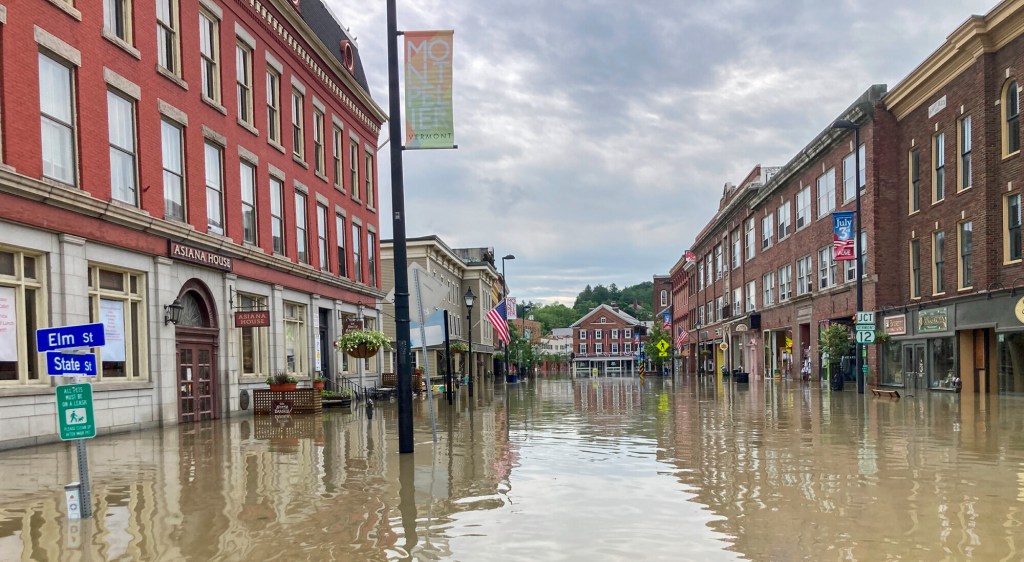
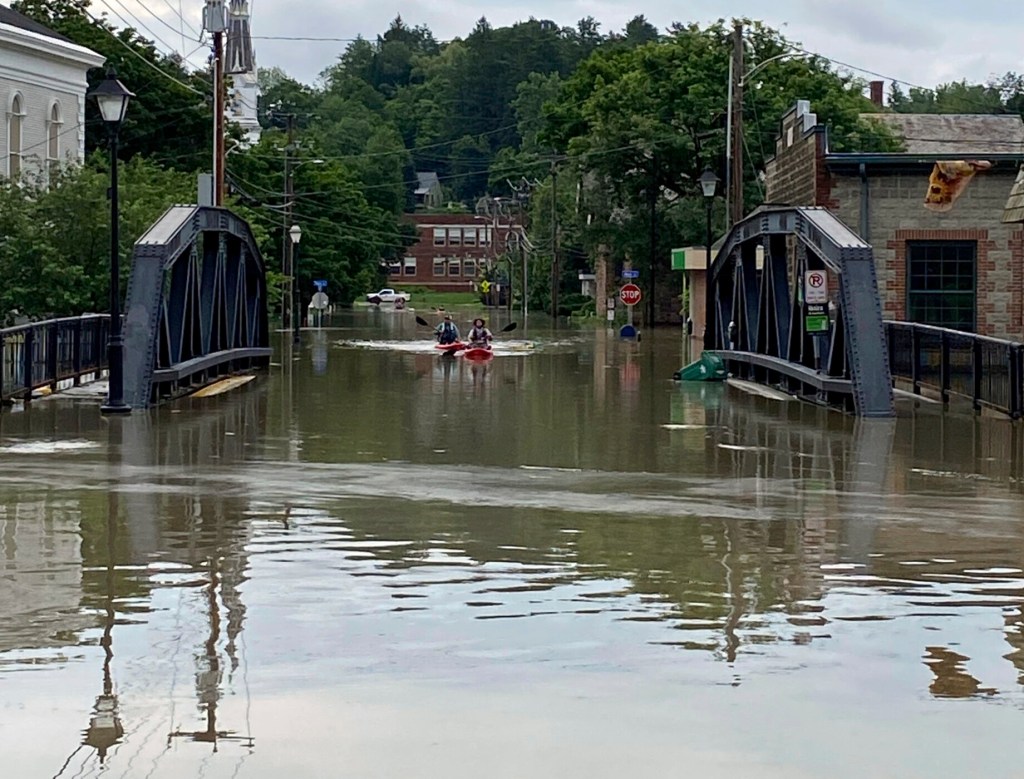
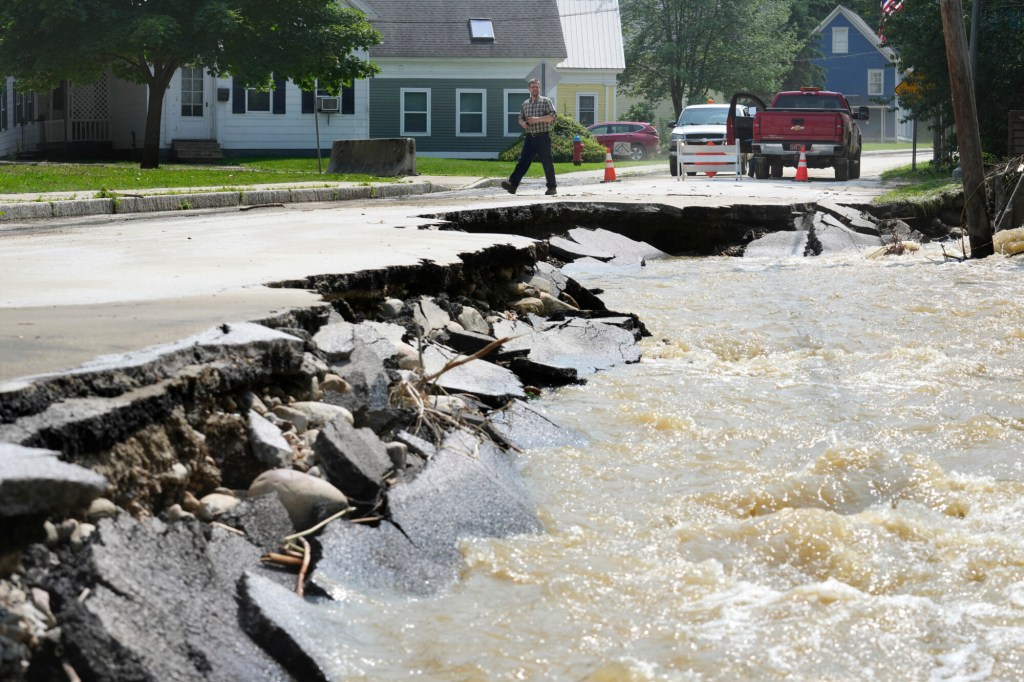
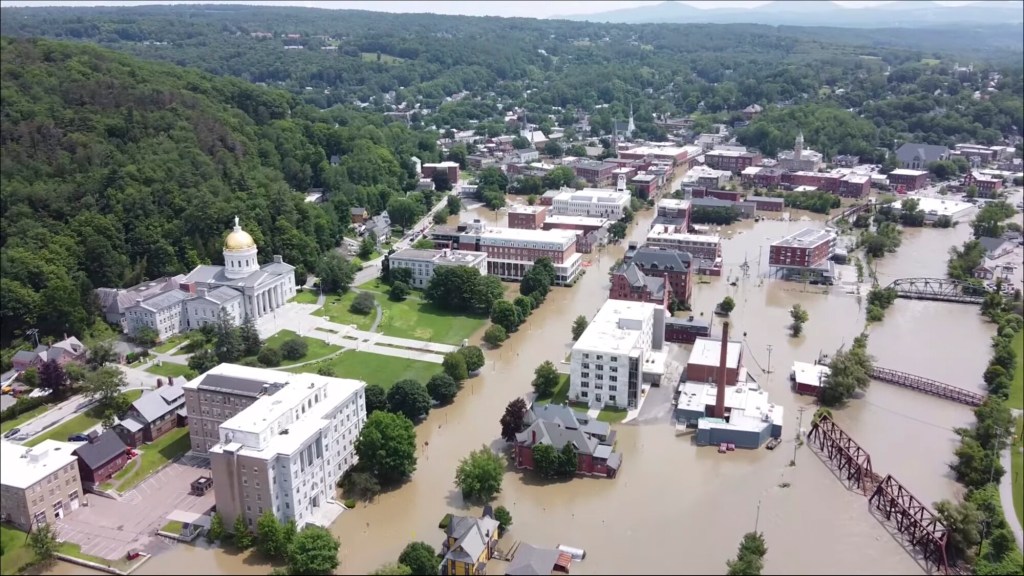
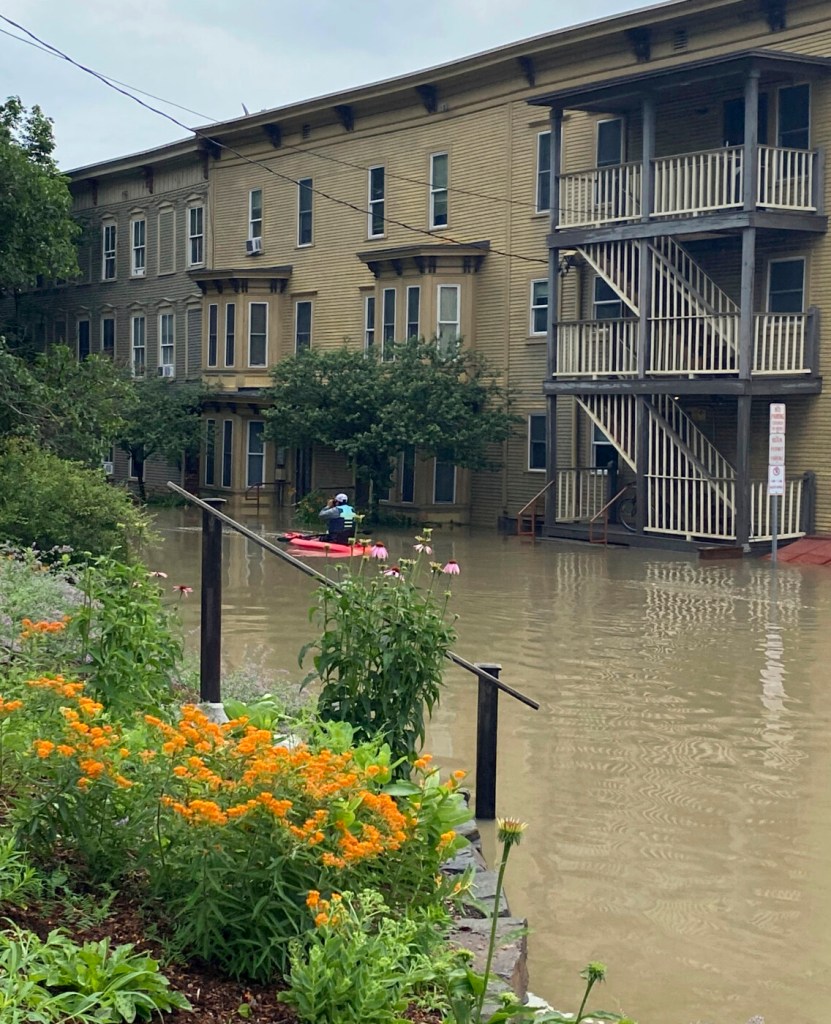
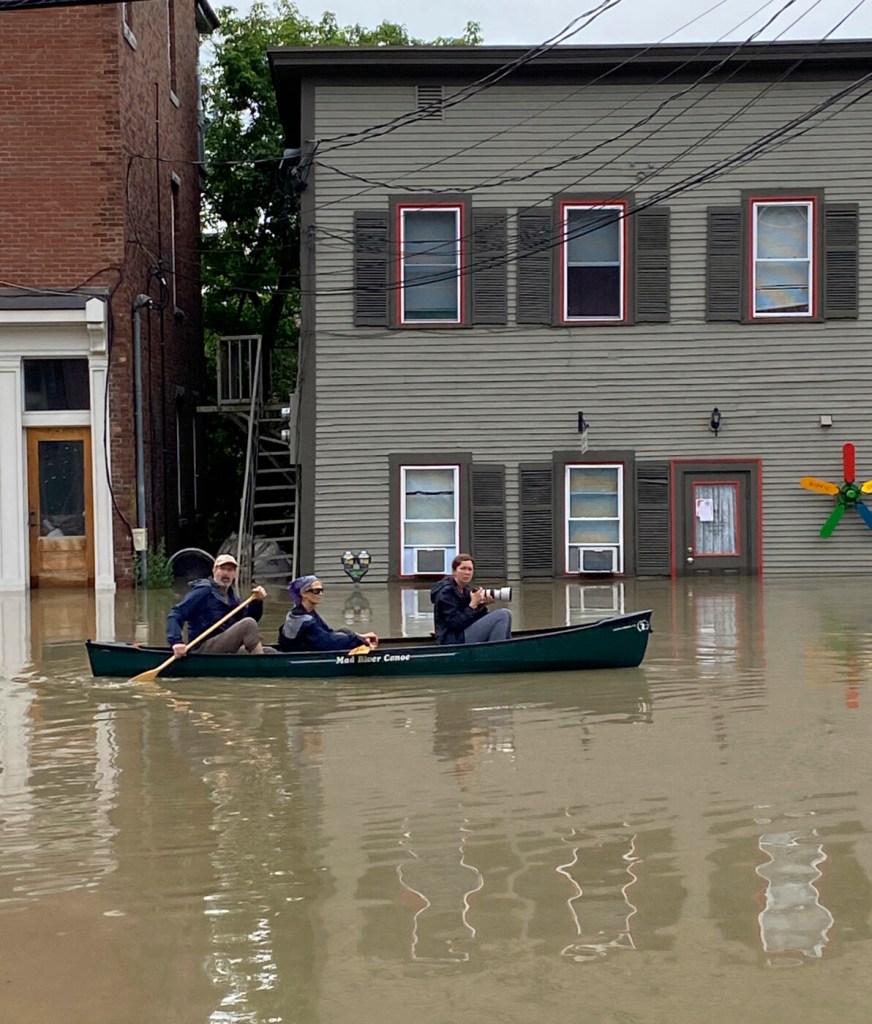
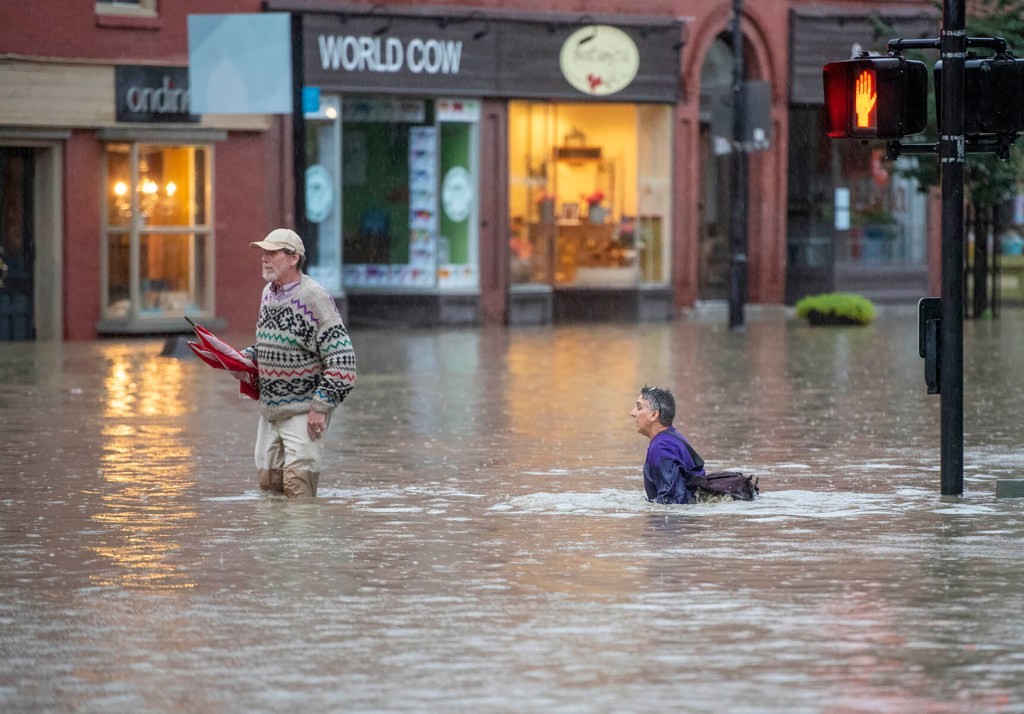
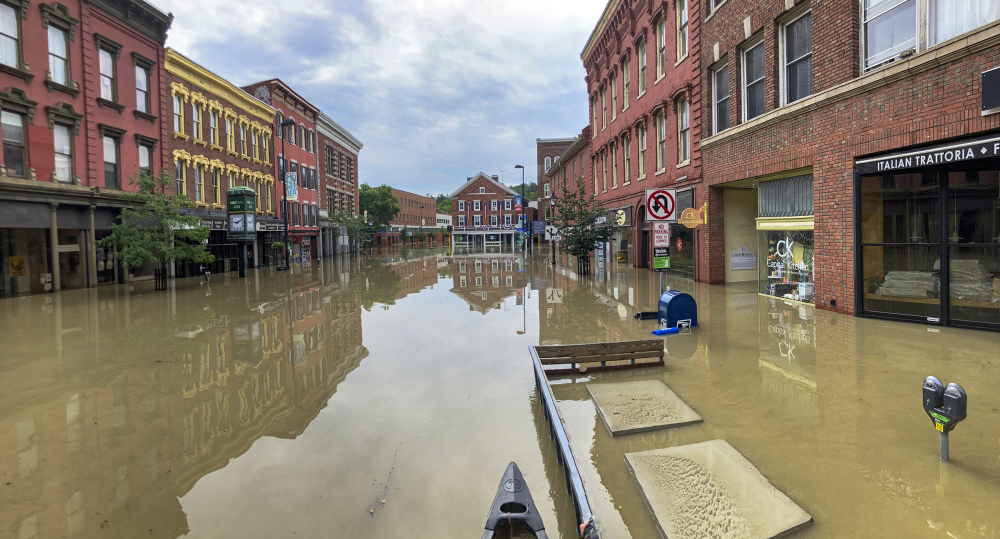
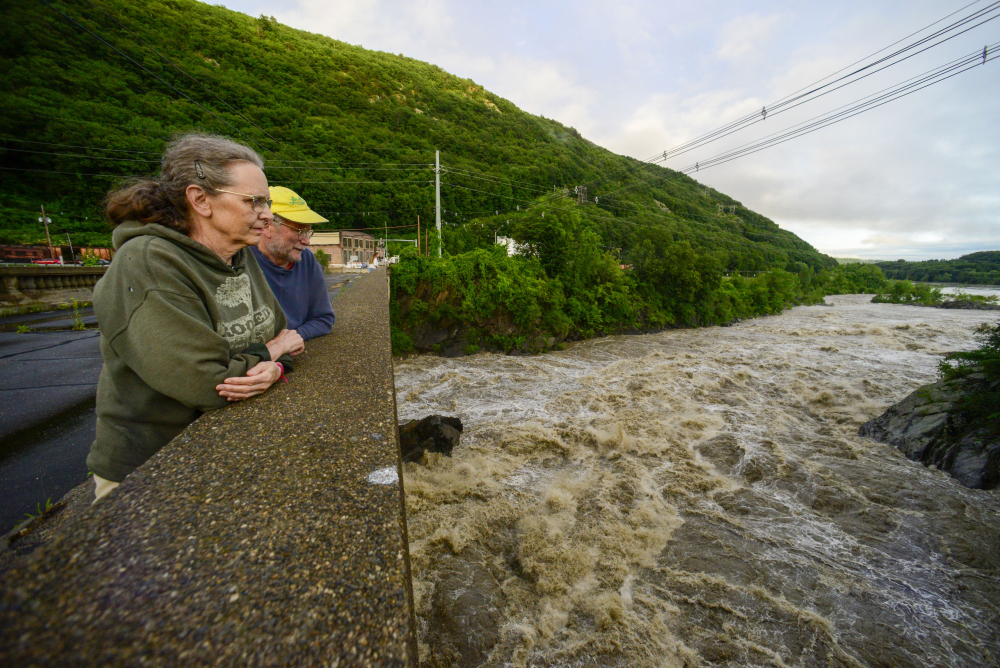
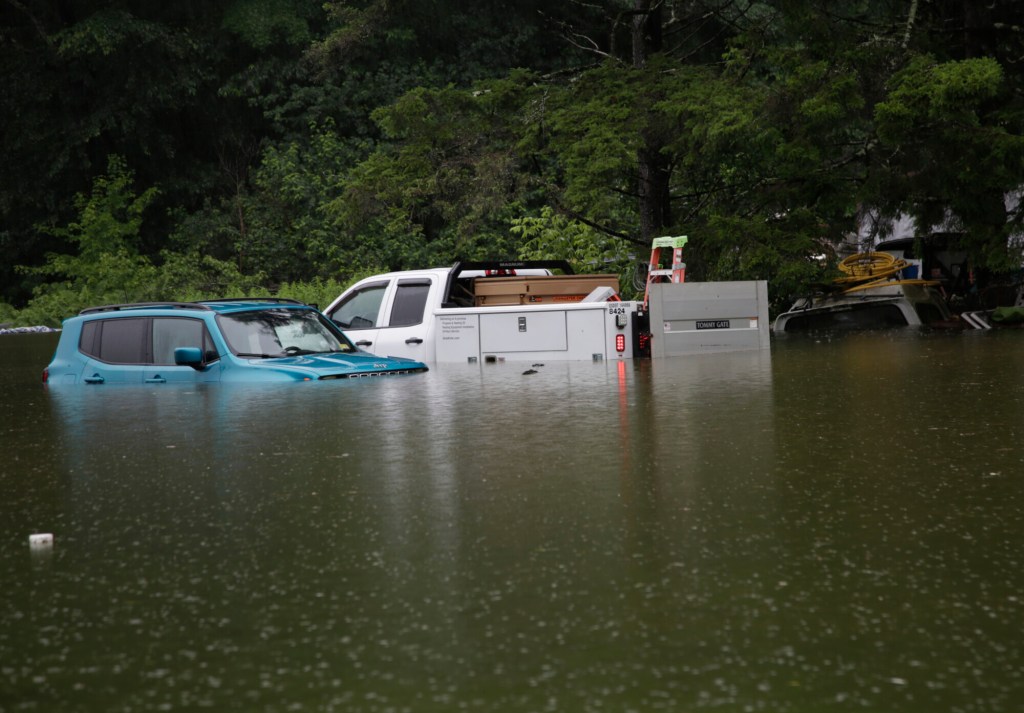
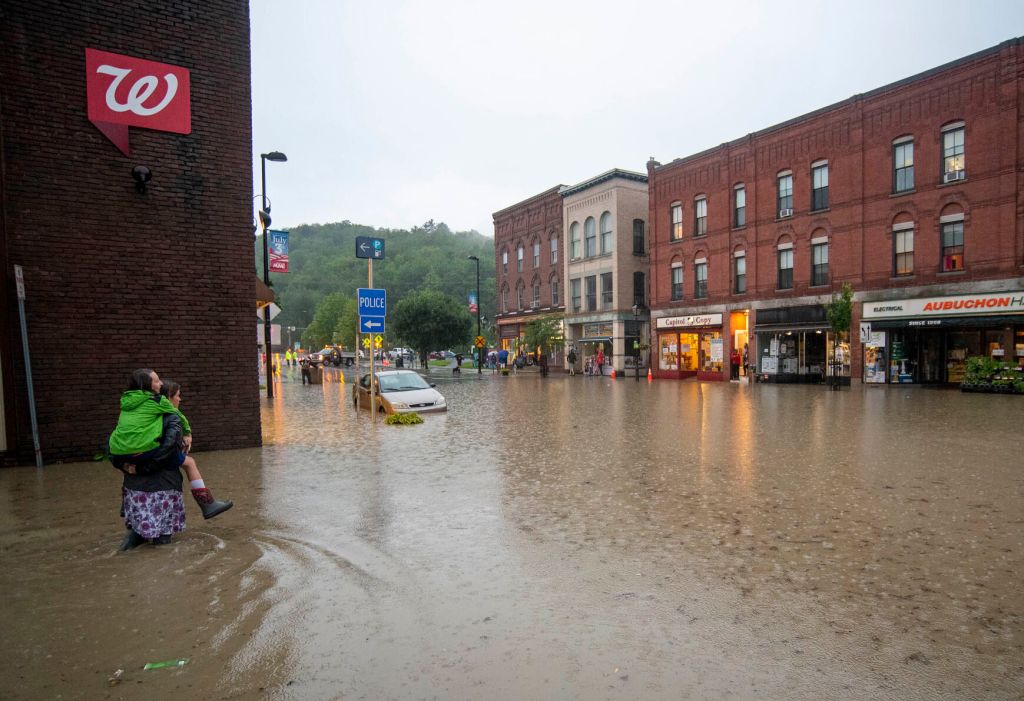
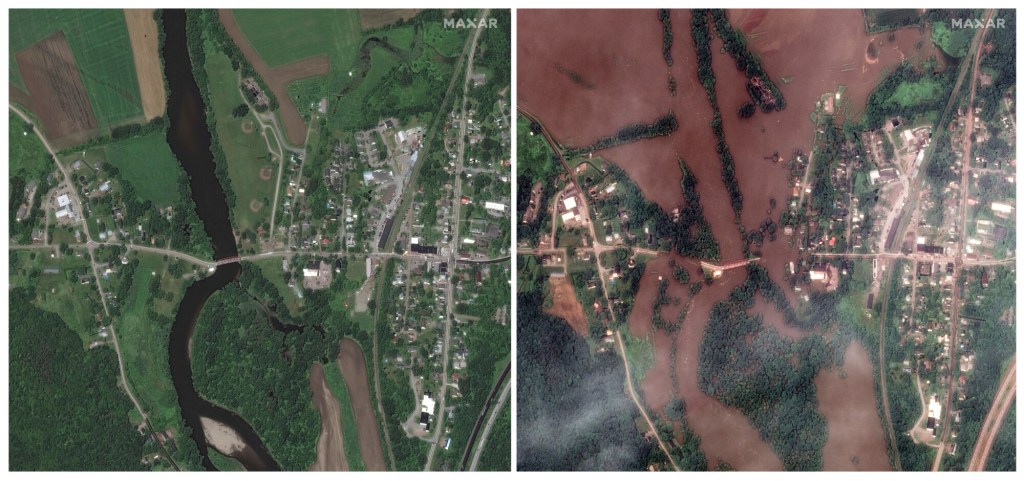

Success. Please wait for the page to reload. If the page does not reload within 5 seconds, please refresh the page.
Enter your email and password to access comments.
Hi, to comment on stories you must . This profile is in addition to your subscription and website login.
Already have a commenting profile? .
Invalid username/password.
Please check your email to confirm and complete your registration.
Only subscribers are eligible to post comments. Please subscribe or login first for digital access. Here’s why.
Use the form below to reset your password. When you've submitted your account email, we will send an email with a reset code.